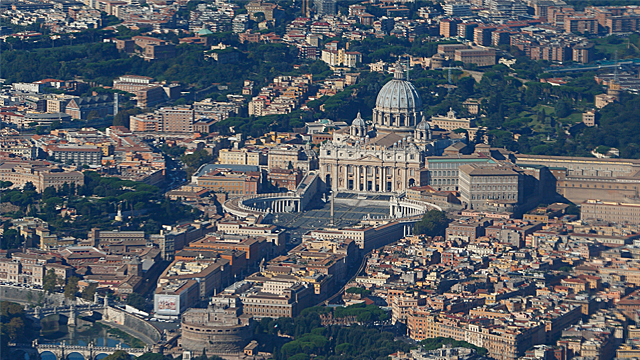

Behind Vatican Walls: The Pact of the Catacombs
Alicia Ambrosio
Friday, November 20, 2015

This year marks 50 years since the end of the Second Vatican Council and the promulgation of several key documents that shaped the church. There is one document, not part of the official canon of Vatican II documents, that shaped the church just as much yet has been almost forgotten. It is called the Catacombs Pact and has experienced a resurgence on its 50th anniversary due, some say, to the ecclesiastical climate created by Pope Francis.
On November 16, 1965 a group of 42 council fathers paid a visit to the Catacombs of Domitila on the outskirts of Rome. At an altar deep below the surface of modern Rome, surrounded by tombs of ancient Christians, Bishop Charles-Marie Himmer of Tournai, Belgium celebrated mass for his fellow council fathers. Following the Mass the fathers composed a text: a set of principles they would agree to adhere to in their ministry. Then-Bishop Helder Camara took served as the group’s scribe.
Among other things, the council fathers agreed to live simply, renounce the pomp and luxury that came with episcopal positions, and entrust the administrative aspects of running a diocese to competent lay people. Essentially, they agreed to let nothing get in the way of being pastors.
Location, location, location
Making the trek out to the catacombs of Domitila in order to sign the document was just as important as the content of the pact.
The best known catacombs under the Eternal City are the catacombs of St. Callixtus which house the remains of nine early popes. The entrance to the catacombs of Domitilla, which house the tombs of 100,000 early Christians, are close by but less advertised. The underground complex is also home to the only underground basilica that can still be visited. The message was clear: “we’re getting back to basics.”
Modus Operandi
Given the name of the pact one expects to find earth shattering statements in the document. To the modern eye the content is rather…..well, unexciting. In 1965, the points contained in the document would have been seen as turning the church on its head. They agreed to:
- Live the way “our people” normally live in regards to wardrobe, food, transportation and everything related.
- Renounce “the appearance and reality” of wealth, especially in regards to wardrobe, i.e: fabrics used and insignia made of precious metals.
- “We will not own under our own name” real estate, furniture or bank accounts and “if it is necessary to have such things, we will put them in the name of our diocese or social or charity organizations”.
- When possible, entrust management of dioceses’ finances and assets to competent lay people “so we can be pastors and apostles more than managers”.
- Renounce being referred to by names or titles that convey power and prestige, (monsignor, excellency, eminence) preferring to be referred to by the evangelical title “Father”.
- Avoid doing anything that appears to give preferential treatment to those who are wealthy or have power.
- Invite the faithful to view their participation in the life of the church as a normal part of worship, apostolate and social action and avoid encouraging participation of people just increase income or encourage donations.
- Give as much of our time, heart, means to apostolic and pastoral care of people and groups that are “economically weak”, support the lay people, religious, deacons, priests whom the Lord calls to evangelize workers and the poor.
- Transform works of “charity” into works of social initiative based on love and justice.
- Work towards getting governments to enact laws, structures and social institutions necessary justice, equality, and harmonious development.
- Invest, as much as possible, in poor dioceses.
- “Share our lives with our brother priests, religious and laypeople in Christ so our ministry may become a true service”.

Every week brings new, exciting, and sometimes juicy headlines from behind Vatican walls and every week Alicia delves deeper into one of those headlines. For a full run down of what’s been happening behind Vatican walls, watch Vatican Connections. Already watch the program? Come back every Friday for an in-depth look at an issue, headline or person. Season 4 of Vatican Connections airs every Friday at 8:00 pm ET.
Related Articles:
<<













